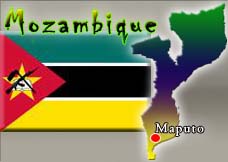Mozambique: Africa losing over 1 billion dollars to illegal fishing
 Maputo- Sub-Saharian African countries are currently losing more than 1 billion dollars yearly due to illegal fishing in their waters, a senior government official in Mozambique revealed this week.
Maputo- Sub-Saharian African countries are currently losing more than 1 billion dollars yearly due to illegal fishing in their waters, a senior government official in Mozambique revealed this week.
Mozambique Deputy Fisheries Minister Victor Borges said that foreign fishing vessels were regularly spotted fishing illegally in African waters, depleting fish stocks.
"Our countries are witnessing without acting the destruction of fisheries in the region. Every year, we estimate that we lose over one billion dollars to illegal fishing."
For Borges, the main cause was the weak monitoring capacity of African states.
"The illegal vessels are constantly moving down to our region to fish as monitoring is strong in the north (northern hemisphere)," he said, calling for regional cooperation to stem poaching.
The Mozambique government is currently in discussions with international partners about obtaining 80 million dollars to purchase specialised vessels and aircraft to monitor its 2,500-kilometre coastline.
In July 2008, Mozambican authorities seized a Namibian-registered ship carrying sharks illegally fished in its waters.
The Antillas Reefer was netted off the coast of central Zambezia province carrying 43 tonnes of sharks, 4 tonnes of shark fin, 1.8 tonnes of shark tail, 11.3 tonnes of shark liver and 20 tonnes of shark oil, all with a total estimated value of 5 million dollars.
Illegal fishing is blamed for the depletion of worldwide shark and whale stocks, both of which are popular with Asian diners. Shark fins are a delicacy in Asia, while shark liver and oil are used for medicinal purposes.
One kilogram of shark fin is sold in Mozambique for between 6,000 and 7,000 meticais (240 to 280 US dollars), but in Asia, for instance in Hong Kong, can fetch up to 1,000 dollars.
Mozambique's licensed fishing industry contributes about 3 per cent to the country's gross domestic product. Incomes from prawns, the country's most famous export, fell from 92 million dollars in 2006 to 78 million dollars in 2007. (dpa)